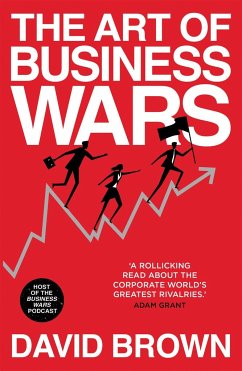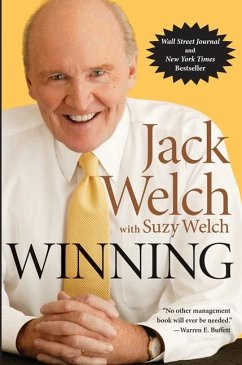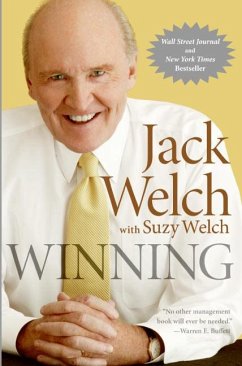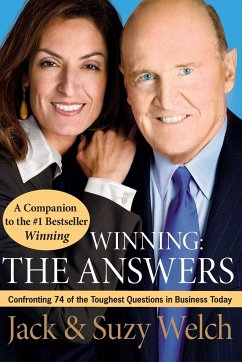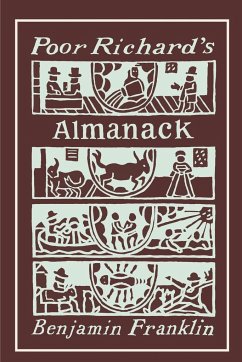
Poor Richard's Almanack
Illustrated Edition
Versandkostenfrei!
Versandfertig in 1-2 Wochen
11,99 €
inkl. MwSt.
Weitere Ausgaben:

PAYBACK Punkte
6 °P sammeln!
2018 Reprint of 1937 Edition. Full facsimile of the original edition, not reproduced with Optical Recognition software. A Reprint of the Peter Pauper Pressedition of Franklin's classic work with dozens of charming woodcuts. Franklin, the American inventor, statesman, and publisher, achieved success with Poor Richard's Almanack. Almanacks were very popular books in colonial America, offering a mixture of seasonal weather forecasts, practical household hints, puzzles, and other amusements. Poor Richard's Almanack was also popular for its extensive use of wordplay, and some of the witty phrases c...
2018 Reprint of 1937 Edition. Full facsimile of the original edition, not reproduced with Optical Recognition software. A Reprint of the Peter Pauper Pressedition of Franklin's classic work with dozens of charming woodcuts. Franklin, the American inventor, statesman, and publisher, achieved success with Poor Richard's Almanack. Almanacks were very popular books in colonial America, offering a mixture of seasonal weather forecasts, practical household hints, puzzles, and other amusements. Poor Richard's Almanack was also popular for its extensive use of wordplay, and some of the witty phrases coined in the work survive in the contemporary American vernacular. The Almanacks were published yearly and contained the calendar, weather, poems, sayings and astronomical information that a typical almanac of the period would contain. Franklin also included the occasional mathematical exercise, and the Almanack from 1750 features an early example of demographics. It is chiefly remembered, however, for being a repository of Franklin's aphorisms and proverbs, many of which live on in American English. These maxims typically counsel thrift and courtesy, with a dash of cynicism.





